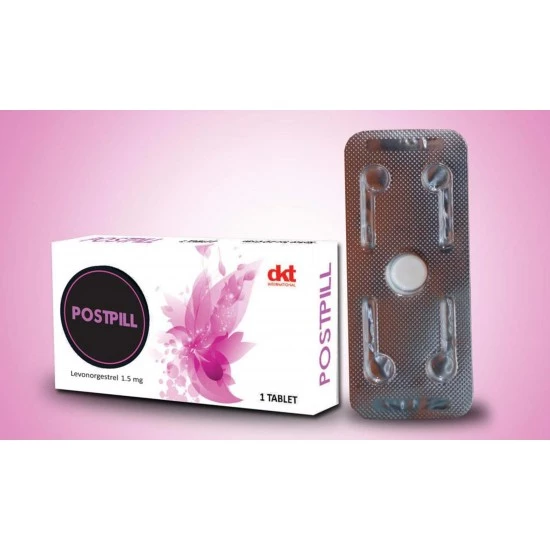POSTPILL contains only one thing called Levonorgestrel (don’t worry about the big word). Here’s the crucial part: if you take one tablet within 72 hours (that’s like 3 days) after having unprotected sex, it can help reduce the chance of getting pregnant.
Unplanned pregnancies can happen to anyone, and when they do, it’s crucial to have options. This article is your comprehensive guide to everything you need to know about emergency contraception, from what it is to how to use it responsibly.
What Is Postpill Drug
It’s a term for emergency contraception, a backup method designed to prevent pregnancy when your regular contraception plan fails or when no contraception is used.
How long does postpill last in the body?
Postpill is most effective when taken within 24 hours after unprotected sex, and its effectiveness gradually declines after that. However, it can still provide some level of effectiveness for up to 72 hours (3 days) after unprotected intercourse, which is why it’s recommended to take it as soon as possible within that timeframe.
After 72 hours, its effectiveness significantly decreases, and it may not be reliable in preventing pregnancy.
How effective is postpill
The chance of preventing pregnancy can be somewhere between 59% to 95%, depending on a few factors. It’s not a guarantee, but it can work pretty well.
Side effects
- If you vomit within two hours of taking the pill, seek medical advice.
- Expect your period to be irregular after taking emergency contraception.
- You might experience abdominal pain after taking the pill.
- It’s possible to feel fatigued, but not everyone experiences this.
- If you get a headache after taking the pill, it’s usually not a cause for major concern. You can take pain relievers if needed.
However, if the headache becomes severe or persists for a long time, it’s a good idea to consult a healthcare provider.
Does postpill delay period
Postpill can sometimes affect the timing of your menstrual period. It’s not uncommon for women to experience changes in their menstrual cycle after taking emergency contraception. Here’s how it can impact your period:
1. Earlier Period:
Some women may experience their period a few days earlier than expected after taking emergency contraception. This is a common response and is not usually a cause for concern.
2. Delayed Period:
On the other hand, for others, emergency contraception might cause a delay in their menstrual period. This delay can vary from a few days to a week or more.
3. Heavier or Lighter Period:
Emergency contraception can also affect the flow of your period. Some women may have a heavier period, while others might have a lighter one.
These changes occur because emergency contraception contains hormones, such as levonorgestrel, that can temporarily disrupt your normal menstrual cycle. It’s essential to remember that these changes are typically short-term, and your menstrual cycle should return to its regular pattern in subsequent months.
If your period is significantly delayed (more than a week), or if you experience other unusual symptoms, such as severe pain or heavy bleeding, it’s a good idea to consult a healthcare provider. They can help rule out any underlying issues and provide guidance on managing any menstrual changes.
It’s also worth noting that if you have concerns about pregnancy after taking emergency contraception and your period is delayed, you can take a pregnancy test to ease your worries. If the test is positive or if you have any doubts, consult a healthcare provider for further evaluation and guidance.
When to Use :
Emergency contraception should be used in specific situations, such as when:
- Condoms break or slip off.
- You forget to take your birth control pills.
- You experience contraceptive failure with other methods.
- You engage in unprotected sex or sexual assault occurs.
It’s a valuable option when things don’t go as planned, but it’s not a substitute for regular contraception.
Where to Get Postpill Drug
Within the price range of ₦500 -₦1,000 You can obtain it from:
– Pharmacies (Plan B, over-the-counter)
– Healthcare providers (Ella, prescription)
– Family planning clinics
– Online pharmacies (consult your healthcare provider for guidance)
Access may vary depending on your location, but it’s generally available when you need it.
Conclusion:
In the world of sexual and reproductive health, knowledge is power. As a young woman, understanding emergency contraception, or the “postpill,” can provide peace of mind when things don’t go as planned. Remember, it’s a backup option, not a regular form of contraception.
